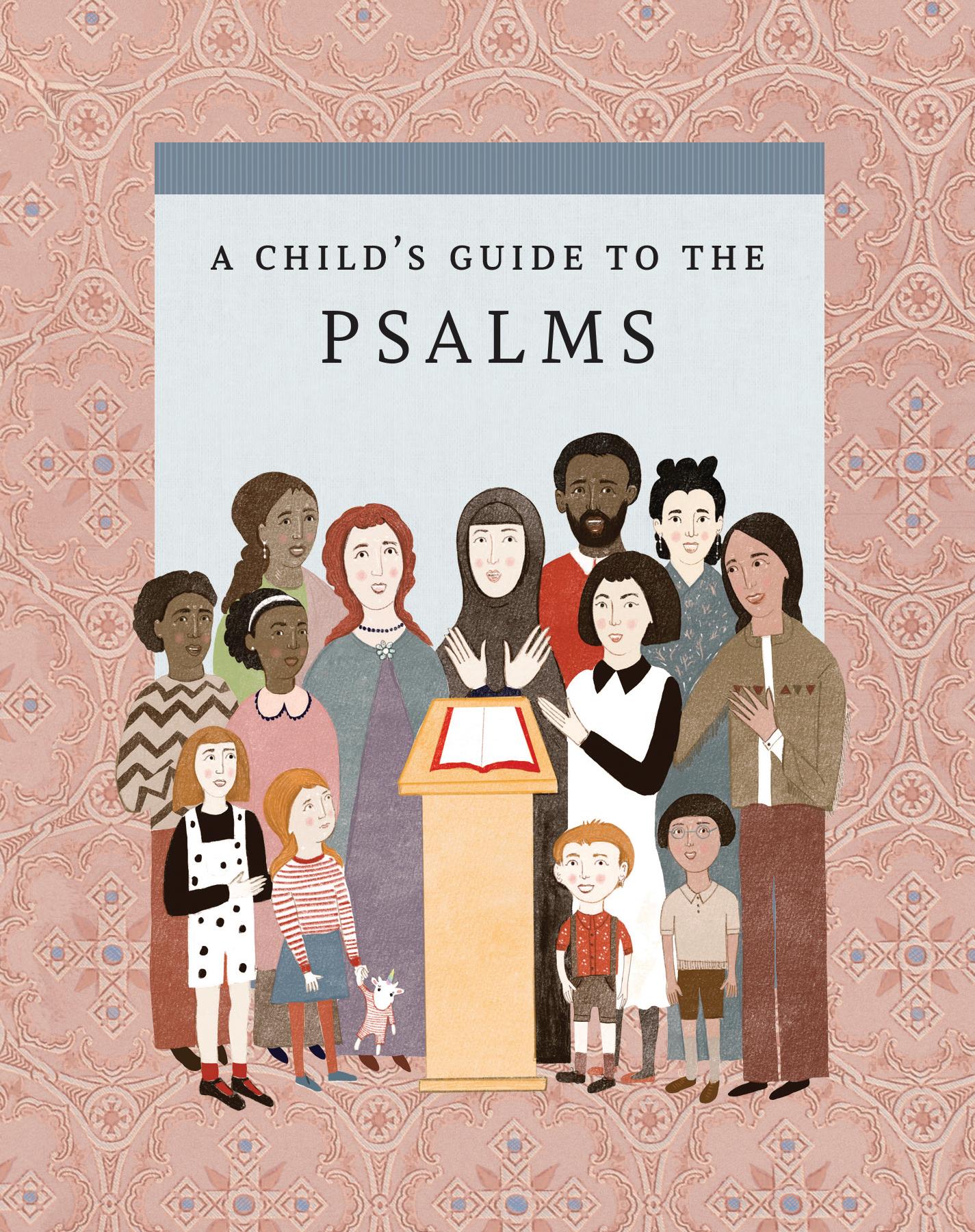

A Child’s Guide to the Psalms
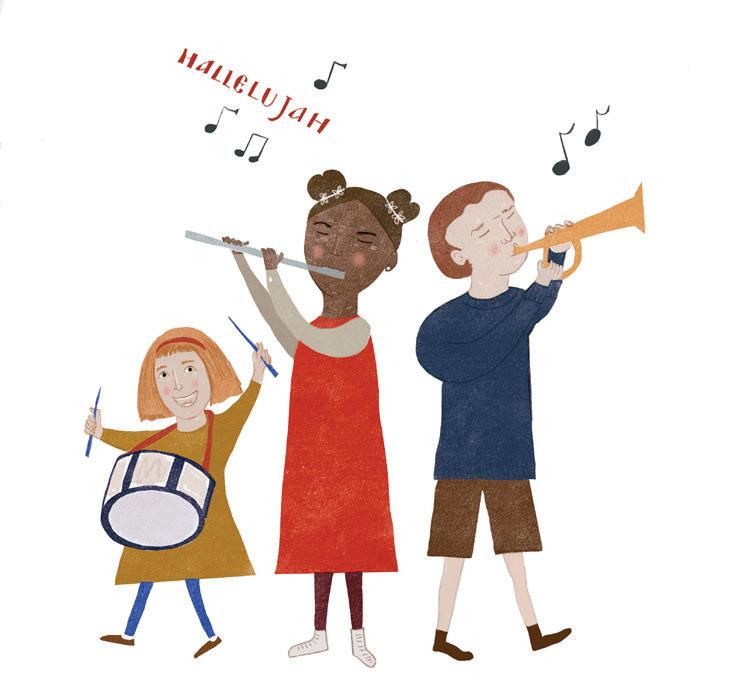
Ancient Faith Kids
CHESTERTON, INDIANA
Sample pages only. Purchase the full book at https://store.ancientfaith.com/a-childs-guide-to-the-psalms/
Daniel G. Opperwall, editor
Svetlana Sedlan, illustrator
A Child's Guide to the Psalms
Text copyright © 2025 Daniel G. Opperwall
Illustrations copyright © 2025 Svetlana Sedlan

An imprint of Ancient Faith Publishing
1050 Broadway, Suite 6 • Chesterton, IN 46304
store.ancientfaith.com
isbn: 978-1-955890-87-8
library of congress control number: 2025935276
All rights reserved. No part of this publication may be reproduced by any means, electronic, mechanical, photocopying, recording, scanning, or otherwise, without the prior written permission of the publisher.
Book of Psalms translation © 2016 Ancient Faith Publishing. Translated by Monks of the Orthodox Church.
The Psalms text is based on an English translation of the Masoretic Hebrew text corrected to the Septuagint and other ancient witnesses (Dead Sea Scrolls, etc.). Consequently, the numbering of the Psalms is according to the Hebrew, which we consider easier for most English readers to use. The Septuagint numbering is included in parentheses for those who prefer it.
Book design by Amber Schley Iragui
May this book be a blessing to all the children of the Church. —DO
To my children, Simeona, Ilija and Marta—may your hearts always sing to the Lord and guide you in truth and love. —SS
printed in the united states of america
Copyright ©2025 by Daniel G. Opperwall. All Rights Reserved. Published by Ancient Faith Publishing.
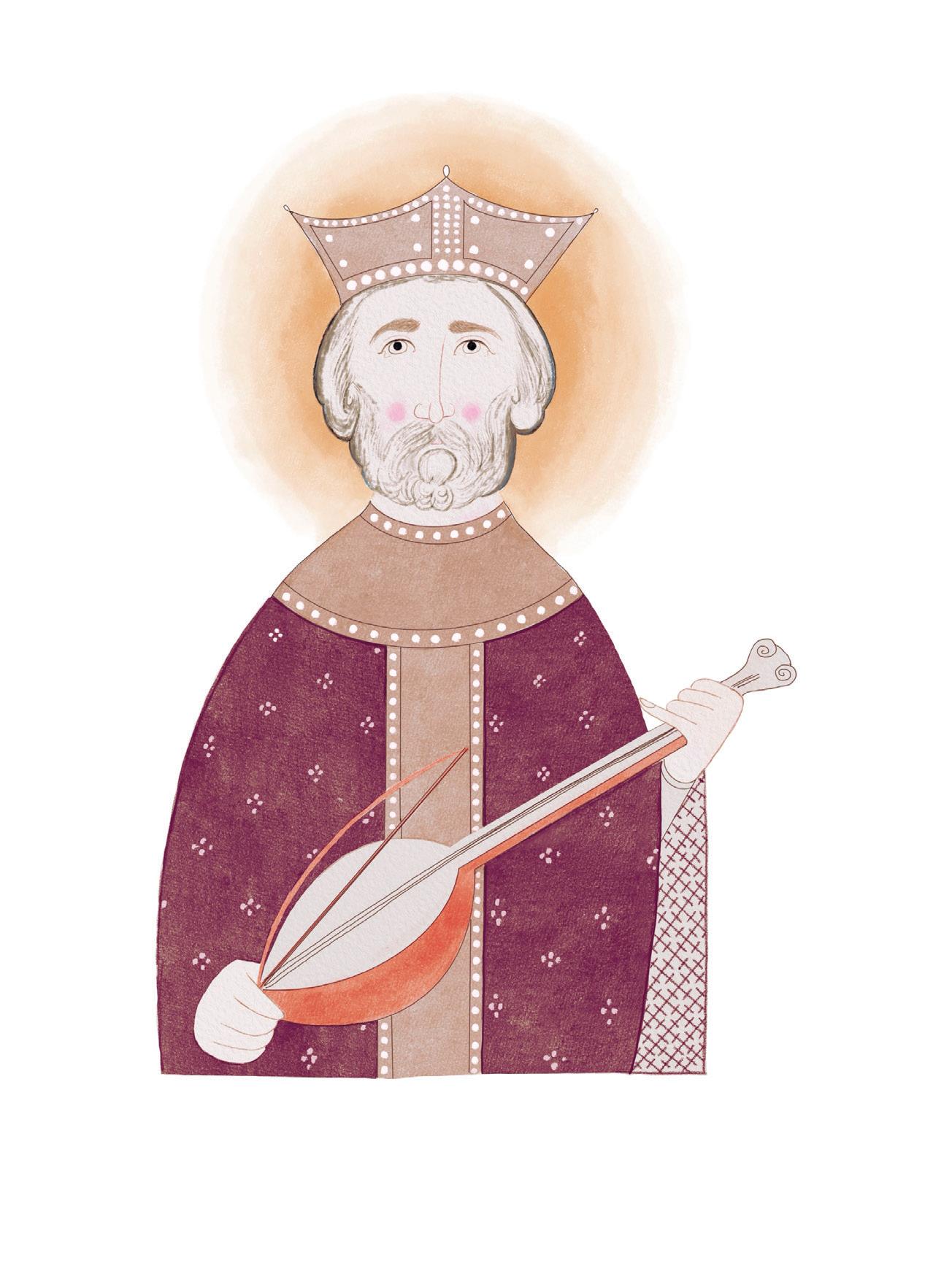
Copyright ©2025 by Daniel G. Opperwall. All Rights Reserved. Published by Ancient Faith Publishing.
are the psalms?
the book of psalms is a collection of prayers and songs that have been used by God’s people since before the time of Jesus Christ. According to Holy Tradition, most of the psalms were written by King David, who was one of the most important ancestors of Jesus and the holiest of the ancient Jewish kings. King David remains one of our most beloved saints to this day. We remember him for his strength as a warrior and leader, for his repentance when he did something wrong, and especially for the beautiful poetry that he gave us in the Book of Psalms.
King David’s story is told in the first two Books of Kingdoms (sometimes called the Books of Samuel) in the Old Testament. Other versions of his story appear in the Books of Chronicles.
Sample pages only. Purchase the full book at https://store.ancientfaith.com/a-childs-guide-to-the-psalms/
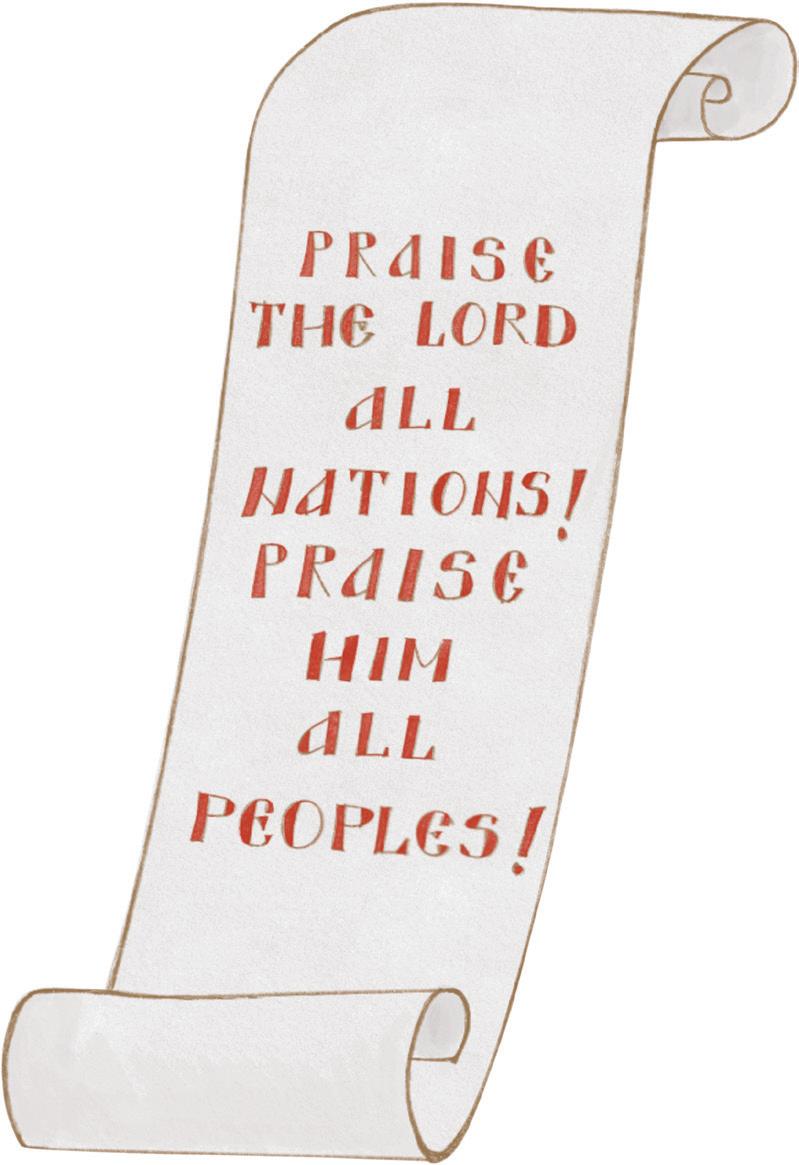
Copyright ©2025 by Daniel G. Opperwall.
by
What Are the Psalms?

Some of the psalms were written by other poets around the time of King David or during the time of David’s son, King Solomon. These other psalms were so beautiful that people decided to keep them alongside King David’s poetry to complete the book that we have in our Bibles today. In this guide, we will usually talk about King David as the author of all the psalms, because even when he did not write them himself, it was always his style and poetry that were their inspiration.
King David lived about a thousand years before the Birth of Jesus. This means that the psalms were being sung by the people of God for hundreds of years before Christ came to us, and the Church still uses these same psalms to this very day. This makes the Book of Psalms by far the most ancient and important book of prayers in our Orthodox Tradition.
Sample pages only. Purchase the full book at https://store.ancientfaith.com/a-childs-guide-to-the-psalms/
Did you know? You will find psalms, or parts of psalms, in every single church service in the Orthodox Church. There is not one day that goes by without the Church praying the psalms!
In most Bibles and Psalters there are 150 psalms. In some Orthodox Bibles you may find 151 instead. This is because the Orthodox Bible has some extra poems that are not always included in other collections. Almost all the psalms are the same in every Bible. However, the numbers might sometimes be slightly different depending on which Bible or Book of Psalms you are using. In this book, we will use the numbers from the Ancient Faith Psalter, but don’t worry if you see the same psalm with a different number in another place.
Copyright
©2025 by Daniel G. Opperwall.
What Are the Psalms?

All the psalms were originally written in the Hebrew language, the language of the ancient Jews, God’s chosen people. Most of the Old Testament in your Bible was originally written in Hebrew as well. In ancient times, about three hundred years before Jesus was born, the Psalms were also translated into Greek. They have been prayed in Greek as well as Hebrew ever since. Today the Psalms have been translated into almost every language in the world. In this book you will find the psalms written in English so that you can understand the words when you sing and pray them in church or at home.
Sample pages only. Purchase the full book at https://store.ancientfaith.com/a-childs-guide-to-the-psalms/
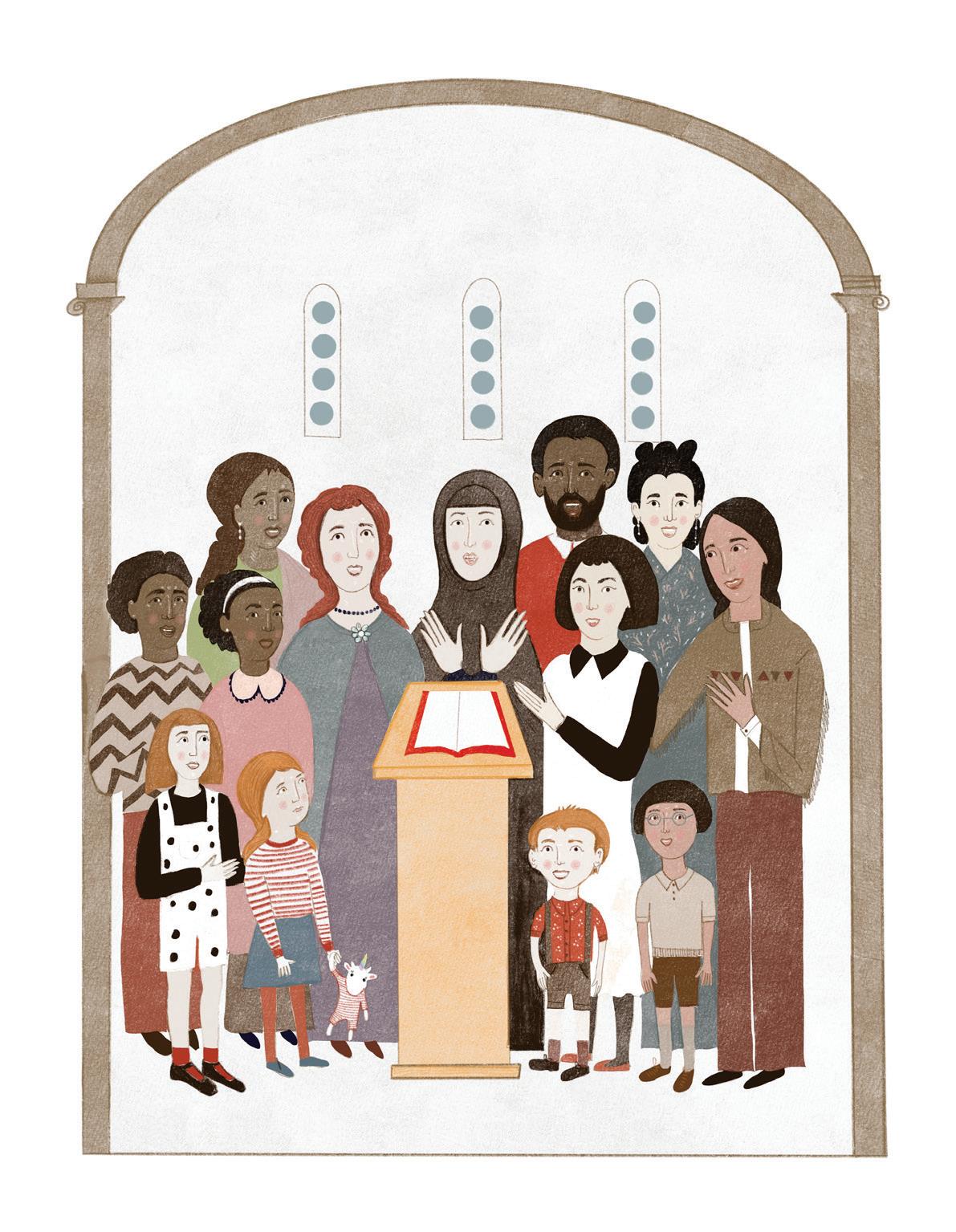
Copyright ©2025 by Daniel G. Opperwall.
What Are the Psalms?

From ancient times, God’s people have read the psalms privately and in church. Most of all, though, the psalms are meant to be sung like music. Today, when we read the psalms in church, we often set them to music or chant them to a simple melody, just as people have done since before the Birth of Jesus.
Sometimes you cannot sing or chant the psalms or you may wish to read them more quietly on your own. Even when we cannot sing them, however, Orthodox Christians try to read the psalms aloud or in a whisper if at all possible rather than just reading them silently. Reading the psalms aloud helps make them alive in our hearts and brings praise to God. When we make the psalms real with our voices, whether quietly or loudly, they brighten the creation and rise with our prayers to the Lord.
Sample pages only. Purchase the full book at https://store.ancientfaith.com/a-childs-guide-to-the-psalms/
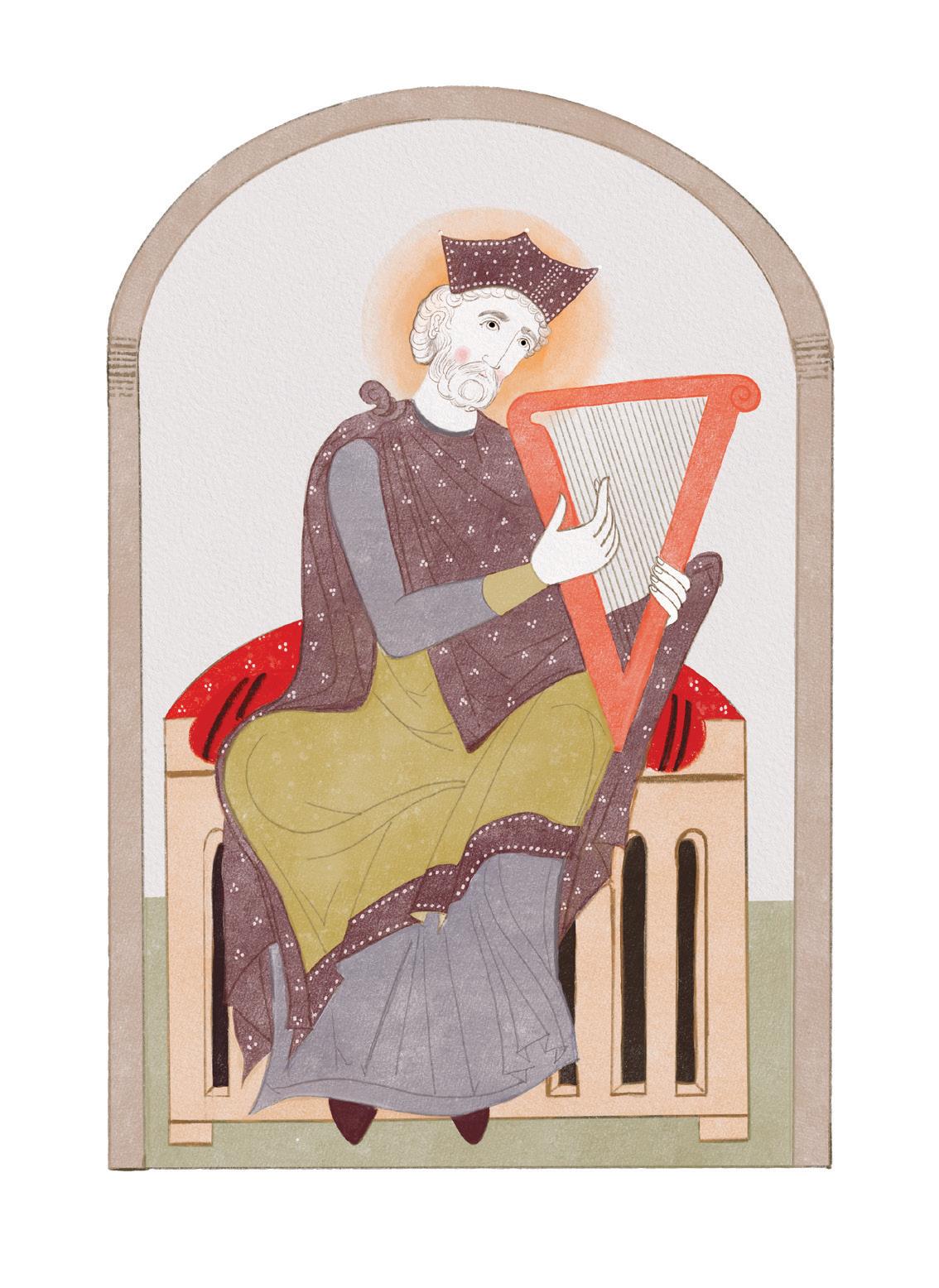
Copyright ©2025 by Daniel G. Opperwall. All Rights Reserved. Published by Ancient Faith Publishing.
What are the Psalms about? Here are some themes found often in the Book of Psalms.
Joy and Praise
One of the things King David writes about most often in the psalms is his joy and his desire to praise God for everything God gives us. Psalms of praise are often the most beloved psalms for Orthodox Christians. They remind us of how good God is and how much we love Him for all the gifts He has bestowed. There is never a bad time to praise God and to thank Him for all things. As King David says, “I will extol You, my God and King, and bless Your name forever and ever” (Psalm 145).
Sample pages only. Purchase the full book at https://store.ancientfaith.com/a-childs-guide-to-the-psalms/
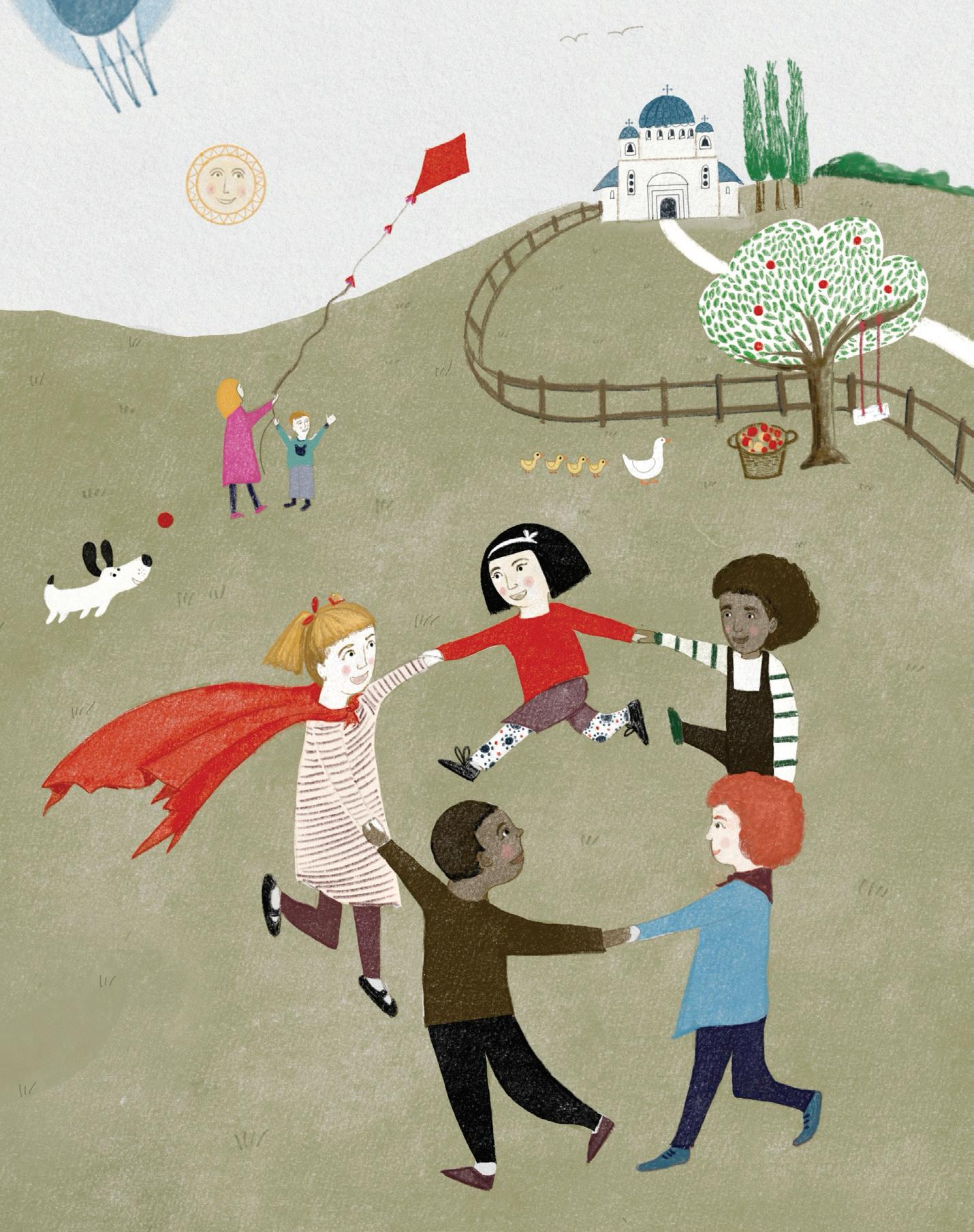

Psalm 67 (66)
O God, be bountiful to us and bless us!
Shine the light of Your countenance upon us and have mercy on us, that we may know Your way upon the earth and Your salvation among all nations.
Let the peoples give thanks to You, O God; let all the peoples give thanks to You!
Let the nations be glad and sing for joy, for You judge the peoples with equity and guide the nations upon the earth.
Let the peoples give thanks to You, O God; let all the peoples give thanks to You!
The earth has yielded its fruit; let God, our God, bless us.
Let God bless us, and let all the ends of the earth fear Him!
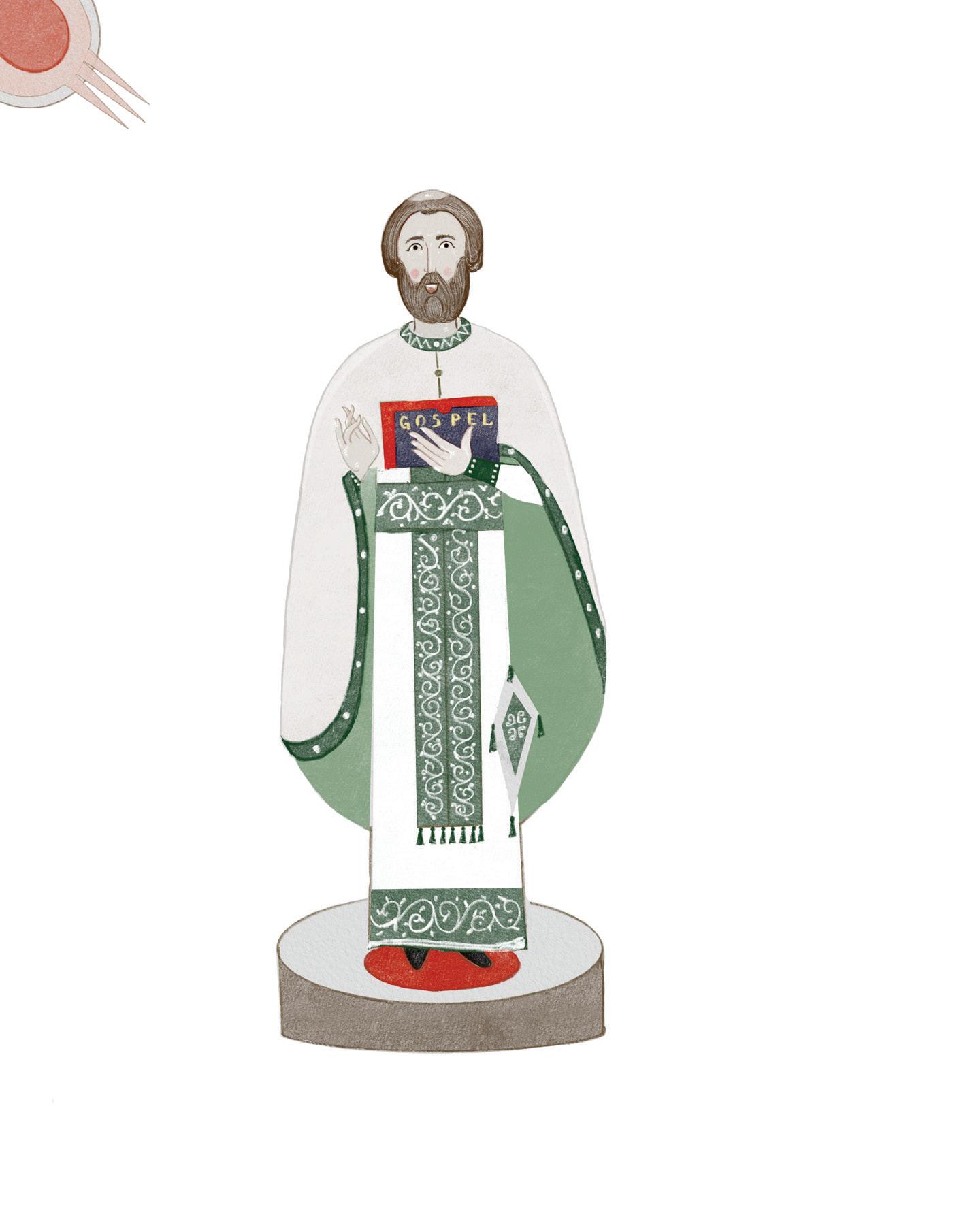
Psalms in the Divine Liturgy

The Little Entrance
The Little Entrance is the part of the Liturgy when the priest and any deacons and altar servers (along with the bishop if he is present) come into the main part of the church holding the Gospel book. In most Orthodox churches, the priest will now sing:
Come, let us worship and fall down before Christ!
This line is adapted from Psalm 94, which calls us to worship and fall down before God. As Christians we see this line fulfilled in Christ, and so we refer it directly to Him in the Liturgy.
